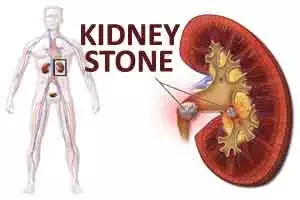- Home
- Medical news & Guidelines
- Anesthesiology
- Cardiology and CTVS
- Critical Care
- Dentistry
- Dermatology
- Diabetes and Endocrinology
- ENT
- Gastroenterology
- Medicine
- Nephrology
- Neurology
- Obstretics-Gynaecology
- Oncology
- Ophthalmology
- Orthopaedics
- Pediatrics-Neonatology
- Psychiatry
- Pulmonology
- Radiology
- Surgery
- Urology
- Laboratory Medicine
- Diet
- Nursing
- Paramedical
- Physiotherapy
- Health news
- Fact Check
- Bone Health Fact Check
- Brain Health Fact Check
- Cancer Related Fact Check
- Child Care Fact Check
- Dental and oral health fact check
- Diabetes and metabolic health fact check
- Diet and Nutrition Fact Check
- Eye and ENT Care Fact Check
- Fitness fact check
- Gut health fact check
- Heart health fact check
- Kidney health fact check
- Medical education fact check
- Men's health fact check
- Respiratory fact check
- Skin and hair care fact check
- Vaccine and Immunization fact check
- Women's health fact check
- AYUSH
- State News
- Andaman and Nicobar Islands
- Andhra Pradesh
- Arunachal Pradesh
- Assam
- Bihar
- Chandigarh
- Chattisgarh
- Dadra and Nagar Haveli
- Daman and Diu
- Delhi
- Goa
- Gujarat
- Haryana
- Himachal Pradesh
- Jammu & Kashmir
- Jharkhand
- Karnataka
- Kerala
- Ladakh
- Lakshadweep
- Madhya Pradesh
- Maharashtra
- Manipur
- Meghalaya
- Mizoram
- Nagaland
- Odisha
- Puducherry
- Punjab
- Rajasthan
- Sikkim
- Tamil Nadu
- Telangana
- Tripura
- Uttar Pradesh
- Uttrakhand
- West Bengal
- Medical Education
- Industry
Blood tests not helpful for screening metabolic disorders in kidney stone disease, Study says

Recent research published in the BJU International Journal reveals that Use of additional blood tests to screen for metabolic disorders is not cost-effective and may provide false reassurance that metabolic abnormalities are not present.
However, a full metabolic assessment with 24-h urine collection should be undertaken in recurrent stone formers and in those at high risk of future stone disease to identify potentially treatable metabolic abnormalities, explained Katie S Eyre and colleagues from the Department of Urology, Oxford University Hospitals NHS Foundation Trust, Oxford, UK.
The authors carried out this study with the objective to determine the clinical utility of blood tests as a screening tool for metabolic abnormalities in patients with kidney stone disease.
Clinical and biochemical data from 709 patients attending the Oxford University Hospitals NHS Foundation Trust for assessment and treatment of kidney stones were prospectively collected. Data were analyzed to determine the utility of serum calcium, parathyroid hormone (PTH), urate, chloride, bicarbonate, potassium and phosphate assays in screening for primary hyperparathyroidism, normocalcaemic hyperparathyroidism, hyperuricosuria, distal renal tubular acidosis (dRTA) and hypercalciuria.
The following results were noted-
- An elevated serum calcium level was detected in 2.3% of patients.
- Further investigations prompted by this finding resulted in a diagnosis of primary hyperparathyroidism in 0.2% of men and 4.6% of women for whom serum calcium was recorded.
- An elevated serum PTH level in the absence of hypercalcaemia was detected in 15.1% of patients.
- Of these patients, 74.6% were vitamin D-insufficient; no patients were diagnosed with normocalcaemic hyperparathyroidism.
- Hyperuricosuria was present in 21.6% of patients and hypercalciuria in 47.1%.
- Hyperuricaemia was not associated with hyperuricosuria, nor was hypophosphataemia associated with hypercalciuria.
- No patient was highlighted as being at risk of dRTA using serum chloride and bicarbonate as screening tests.
Therefore, the authors concluded that "individuals presenting with renal calculi should undergo metabolic screening with a serum calcium measurement alone. Use of additional blood tests to screen for metabolic disorders is not cost-effective and may provide false reassurance that metabolic abnormalities are not present."
Dr. Nandita Mohan is a practicing pediatric dentist with more than 5 years of clinical work experience. Along with this, she is equally interested in keeping herself up to date about the latest developments in the field of medicine and dentistry which is the driving force for her to be in association with Medical Dialogues. She also has her name attached with many publications; both national and international. She has pursued her BDS from Rajiv Gandhi University of Health Sciences, Bangalore and later went to enter her dream specialty (MDS) in the Department of Pedodontics and Preventive Dentistry from Pt. B.D. Sharma University of Health Sciences. Through all the years of experience, her core interest in learning something new has never stopped. She can be contacted at editorial@medicaldialogues.in. Contact no. 011-43720751
Dr Kamal Kant Kohli-MBBS, DTCD- a chest specialist with more than 30 years of practice and a flair for writing clinical articles, Dr Kamal Kant Kohli joined Medical Dialogues as a Chief Editor of Medical News. Besides writing articles, as an editor, he proofreads and verifies all the medical content published on Medical Dialogues including those coming from journals, studies,medical conferences,guidelines etc. Email: drkohli@medicaldialogues.in. Contact no. 011-43720751


